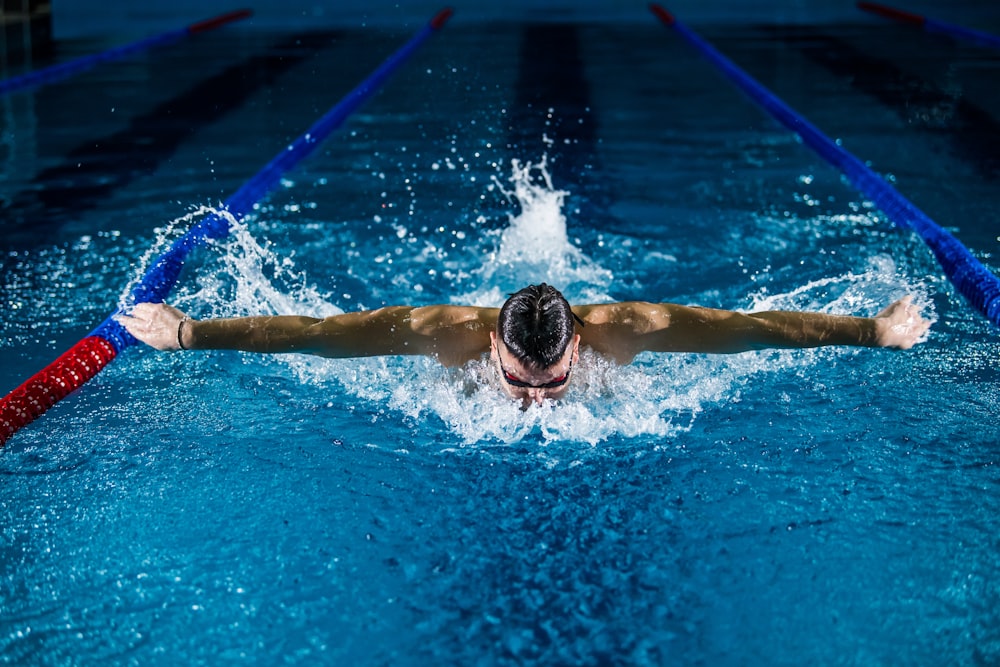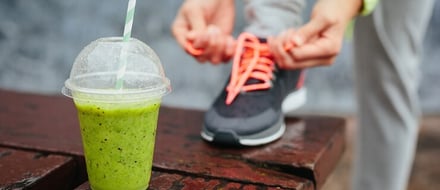MAKE A SPLASH
THIS SUMMER

Join Now For $0 Enrollment!
Learn MorePosted By: Abigail Libers /

After hitting the gym, you might be tempted to reach for whatever you see in the fridge or eat nothing at all, especially if you’re trying to lose weight. But for best results — whether your goal is to drop pounds or build muscle — it’s crucial to be more strategic about what to eat after a workout.
“Physical activity breaks down muscle tissue and depletes the body of glycogen and water,” says Christine Gerbstadt, M.D., R.D., a physician and nutritionist in Washington, D.C. “Afterward, you need protein, carbohydrates, vitamins, minerals and water to refill those stores.” Protein, in particular, is necessary to repair and build muscle. But just how much do you need? When exactly should you start snacking? And how can you best fit in the other nutrients? Check out these expert tips:
Time it right
Regardless of how you work out — weight training, running, yoga, or something else — eat within 30 minutes of hitting the showers. “During this window, your metabolism is revved, so you can consume nutrients while burning extra calories,” says Kris Michel, a wellness coach for Chicago Athletic Clubs. The right fuel also replenishes energy, builds and repairs muscle that was broken down and keeps your metabolism humming.
Make it a combo
Aim to consume snacks that deliver both protein and carbs. Whatever you eat post-workout should include a high-quality source or sources of protein like dairy, nuts, legumes, eggs and lean meat or fish, plus a whole grain (such as oats or corn) and fruit or veggies. Also go for natural, whole foods rather than relying on protein bars or other processed, packaged “fitness foods,” Michel says. Adds Dr. Gerbstadt: “A peanut butter and banana sandwich on whole-wheat bread or yogurt with apples and walnuts are good choices.” A smoothie with yogurt, fruit and oats or nut butter mixed in also fits the bill.
Pay close attention to protein
Snacks should ideally deliver 20 to 50 grams of protein, Dr. Gerbstadt says. The more you weigh and the more intense your workouts, the more protein you need to rebuild muscle. “A fast-paced run and strenuous weight training breaks down more muscle than yoga and walking,” she says.
To put these guidelines in perspective, consider how much protein you might need for the entire day. New research and some experts now suggest it’s smart for active adults to take in up to double the recommended daily allowance (RDA), or a max of about 1.6 grams per kilogram of body weight, and spread it out over all your meals and snacks. (For a 140-pound woman, that’s just over 100 grams for the entire day.) For reference, the following foods all contain 15 grams protein each: 2 ounces chicken breast, 2 hard-boiled eggs, 1 cup of cooked beans or legumes, 2 tablespoons peanut butter and 4 ounces Greek yogurt.
Be on portion patrol
“I often see gym-goers sabotage their workout efforts by eating too much after a workout,” says Michel. “It ruins the chance of creating any real changes in the body.” Limit post-exercise snacks to about 200 to 300 calories. “Working out is not a license to gorge,” adds Dr. Gerbstadt.
If you tend to be famished after leaving the gym, snack a little before your work out, too, to head off a binge. That doesn’t mean have a huge meal — doing so diverts blood away from muscles that need them and instead sends it to your stomach and intestines to help with digestion — but you also don’t want to hear your stomach growling over the gym’s sound system. A happy medium: “Eat at least two hours before exercise and keep it light,” Dr. Gerbstadt says. Try 1 cup of oatmeal, a piece of fruit or slice of toast. And avoid foods known to cause stomach upset during exercise like cheese, milk and high-fat and high-fiber foods like beans.
Grab a milk carton
If you don’t have time to prep or pack a good snack, tap into your inner grade schooler and sip on chocolate milk. Studies suggest it contains the ideal balance of carbohydrates, protein, vitamins and minerals that you need to refuel after working out, Dr. Gerbstadt says.
—Abigail Libers, Tribune Content Solutions
© 2026 Chicago Athletic Clubs. All Rights Reserved. Privacy PolicyEmployee Login
https://www.chicagoathleticclubs.com/
https://www.chicagoathleticclubs.com/services/personal-training/
0
5000
true